HARVESTING COFFEE & CARBON
EFICO TEAMS UP WITH SMALLHOLDER FARMERS FROM ALDEA COFFEE AND ACORN/RABOBANK TO DRIVE CARBON CAPTURE INSETTING
AGROFORESTRY
BOOSTING RESILIENCE AND INCOME FOR SMALLHOLDERS
Integrating agroforestry into coffee production offers smallholder farmers numerous advantages*, including improved crop productivity, healthier soils, increased biodiversity, and greater resilience to climate change.
In Nicaragua, our trusted partner Aldea Coffee -in collaboration with Acorn and Rabobank, is taking these sustainable practices to new heights. They are helping farmers generate additional income by participating in voluntary carbon markets.
With sustainable agroforestry systems, Aldea Coffee’s smallholder coffee farmers not only enhance their yields and protect their land, but also gain financial recognition for their environmental efforts, ensuring long-term economic and ecological benefits.
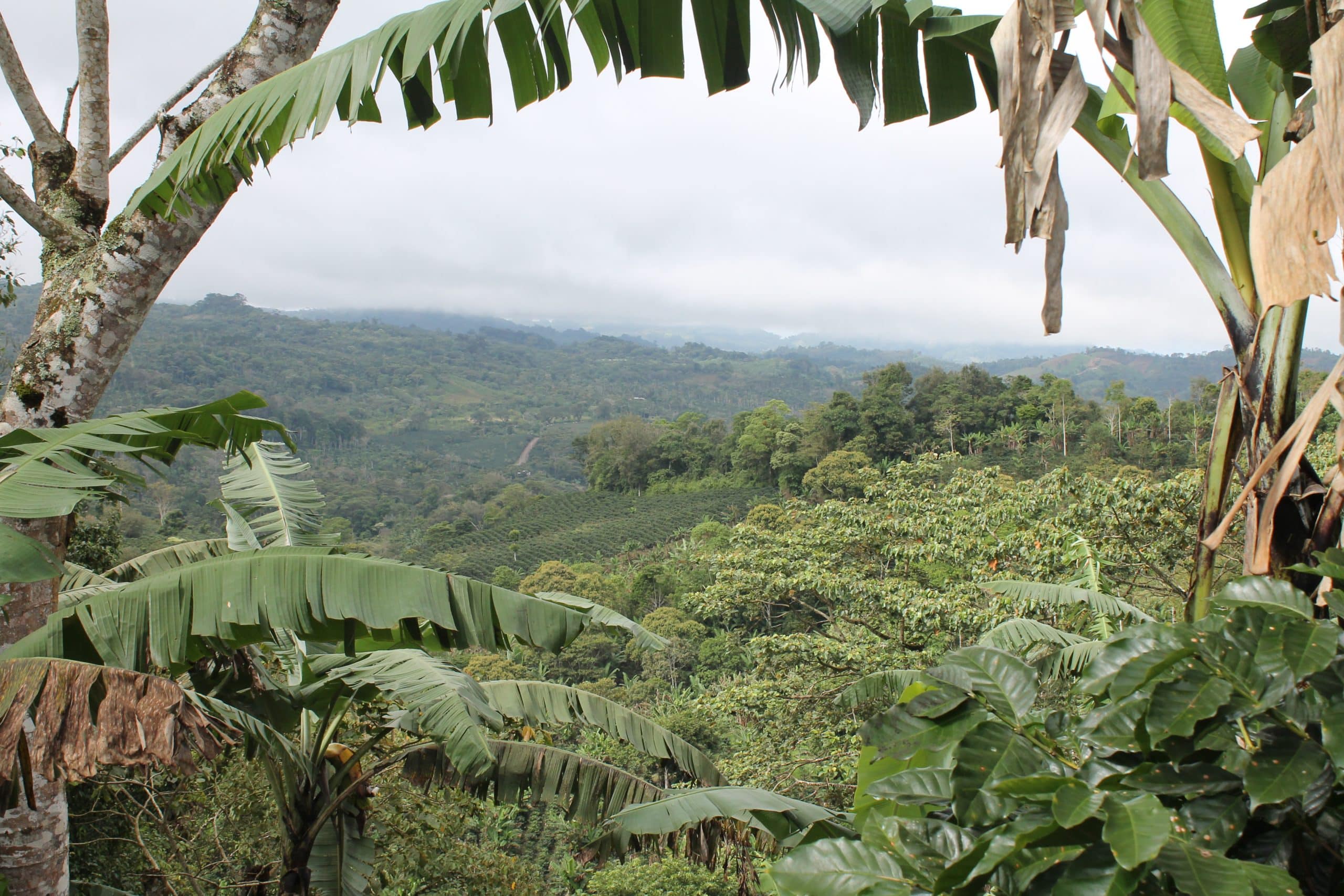
VOLUNTARY CARBON MARKETS
TURNING ENVIRONMENTAL EFFORT INTO ECONOMIC OPPORTUNITY
The voluntary carbon market (VCM) is a decentralised system where private actors trade carbon credits that represent reductions or removals of greenhouse gas (GHG) emissions. This market operates on a voluntary basis, with participants engaging willingly to exchange credits at mutually agreed prices.
Certified under trusted standards such as Plan Vivo, Verra’s Verified Carbon Standard, and the Gold Standard, these carbon credits ensure transparency and accountability. By providing a platform to buy and sell offsets, VCMs empower corporations, organisations, and individuals to achieve self-imposed emission reduction goals..
For smallholder coffee farmers, VCMs open new economic opportunities. Traditional farming practices often come with high costs and environmental challenges (such as soil degradation,…). However, sustainable methods like agroforestry enable farmers to generate carbon credits, rewarding their environmental stewardship. These credits provide additional income while contributing to global climate action
By adopting climate-smart approaches like agroforestry, farmers enhance resilience to climate change, improve soil health, and sequester carbon. Financial incentives for these practices create a win-win scenario, fostering economic stability for farming communities and advancing global efforts toward ecological preservation.
PURPOSEFUL PARTNERSHIPS
EFICO, ALDEA COFFEE, ACORN/RABOBANK
Aldea Coffee, a prominent Nicaraguan cooperative, has been empowering small-scale farmers in the mountainous northern regions, the coffee heartland of Nicaragua, since 1992.Over three decades, Aldea Coffee has supported nearly 5,000 farmers with funding, technical guidance, and commercialisation services, supporting them produce exceptional coffee while fostering sustainable agricultural practices.
Aldea Coffee and EFICO have enjoyed a longstanding partnership, collaborating to bring responsibly sourced green coffee to the global market. Their relationship goes beyond coffee trading, with the support of the EFICO Foundation driving initiatives that improve farmer livelihoods and foster environmental stewardship.
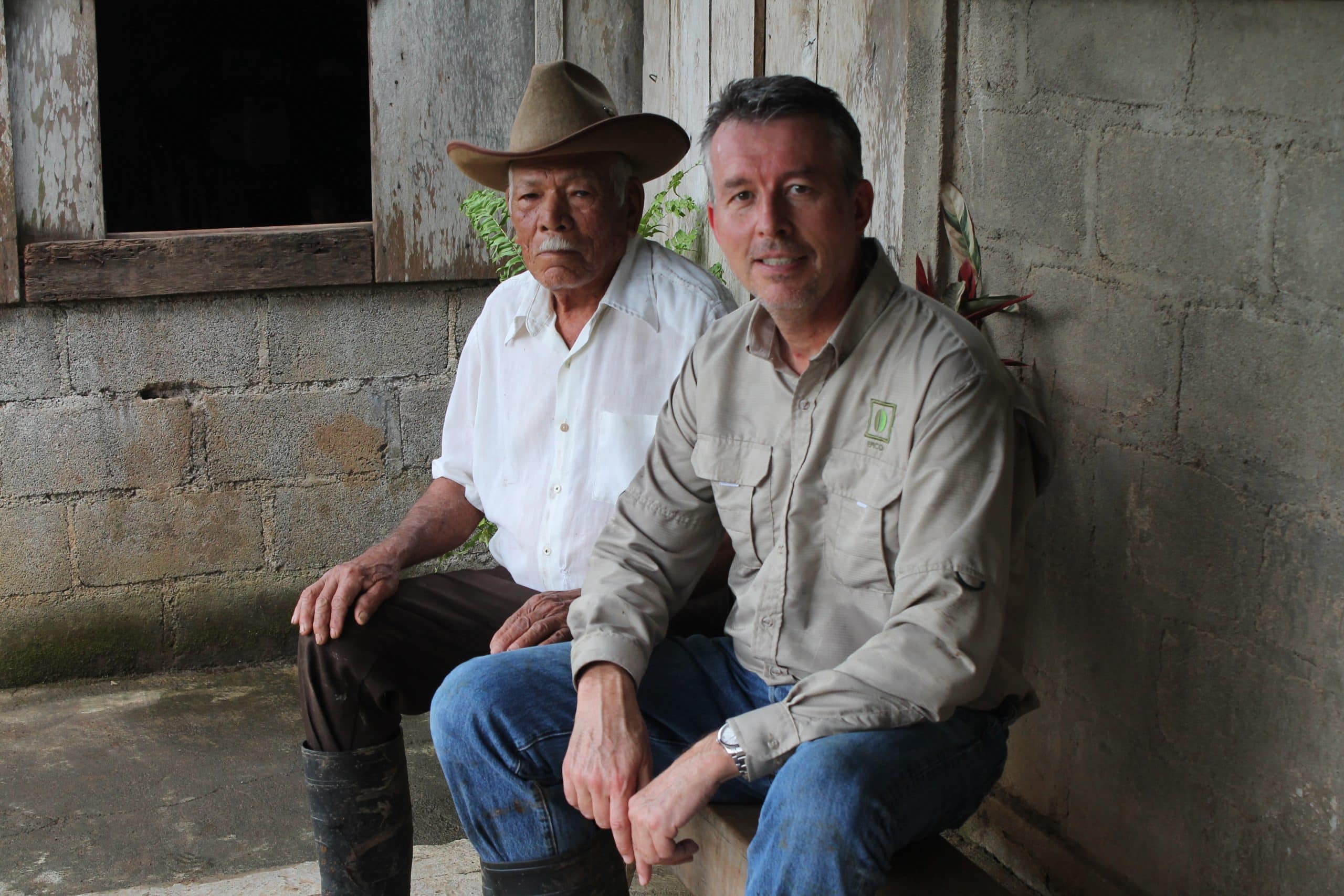
In partnership with Acorn/Rabobank, Aldea Coffee plays a pivotal role in generating carbon credits through agroforestry systems that integrate coffee cultivation with tree planting. These systems not only enhance soil health but also provide measurable carbon storage benefits and support biodiversity. The initiatives are reviewed by and certified under Plan Vivo’s rigorous standards, -ensuring transparency and credibility.
This collaboration allows partners like EFICO and their roaster clients to contribute to climate action by purchasing these carbon credits, directly supporting sustainable practices.
Together, Aldea Coffee, EFICO, and Acorn/Rabobank are driving a shared commitment to sustainable coffee production and climate responsibility -strengthening coffee communities while addressing the critical need for carbon sequestration and ecological balance.
HARVESTING COFFEE & CARBON
We’re thrilled to offer you the chance to join this flavourful Nicaraguan coffee and carbon insetting initiative, supporting not only your green coffee supply but also your internal governance and sustainability efforts.
By purchasing the agroforestry grown ‘NICARAGUA FOREST POSITIVE COFFEE’ from Aldea Coffee’s smallholder farmers you:
- receive exceptional coffee grown in agroforestry systems that protect biodiversity and improve soil health and fertility
- enhance farmer livelihoods with add-on income for carbon storage.
This initiative ensures tangible benefits for smallholder communities. Farmers receive 80% of the sales price, making CRUs not only an effective investment in carbon sequestration but also a direct contribution to the communities driving this climate action. The remaining 20% supports essential coordination efforts by ACORN and its local implementing partner, as well as the certification of the carbon credits. - can use the CRUs to inset (y)our carbon emissions
➵ For every 4 bags of NICARAGUA FOREST POSITIVE coffee sold, EFICO will purchase 1 Plan Vivo-certified carbon credit. This initiative supports Aldea Coffee farmers in adopting regenerative agroforestry practices while insetting the emissions generated from the journey of our coffee -from the farm to Antwerp.
➵ When you order 20 or more bags, EFICO will donate an equivalent number of carbon credits to you, allowing you to claim the CRUs in your own name.
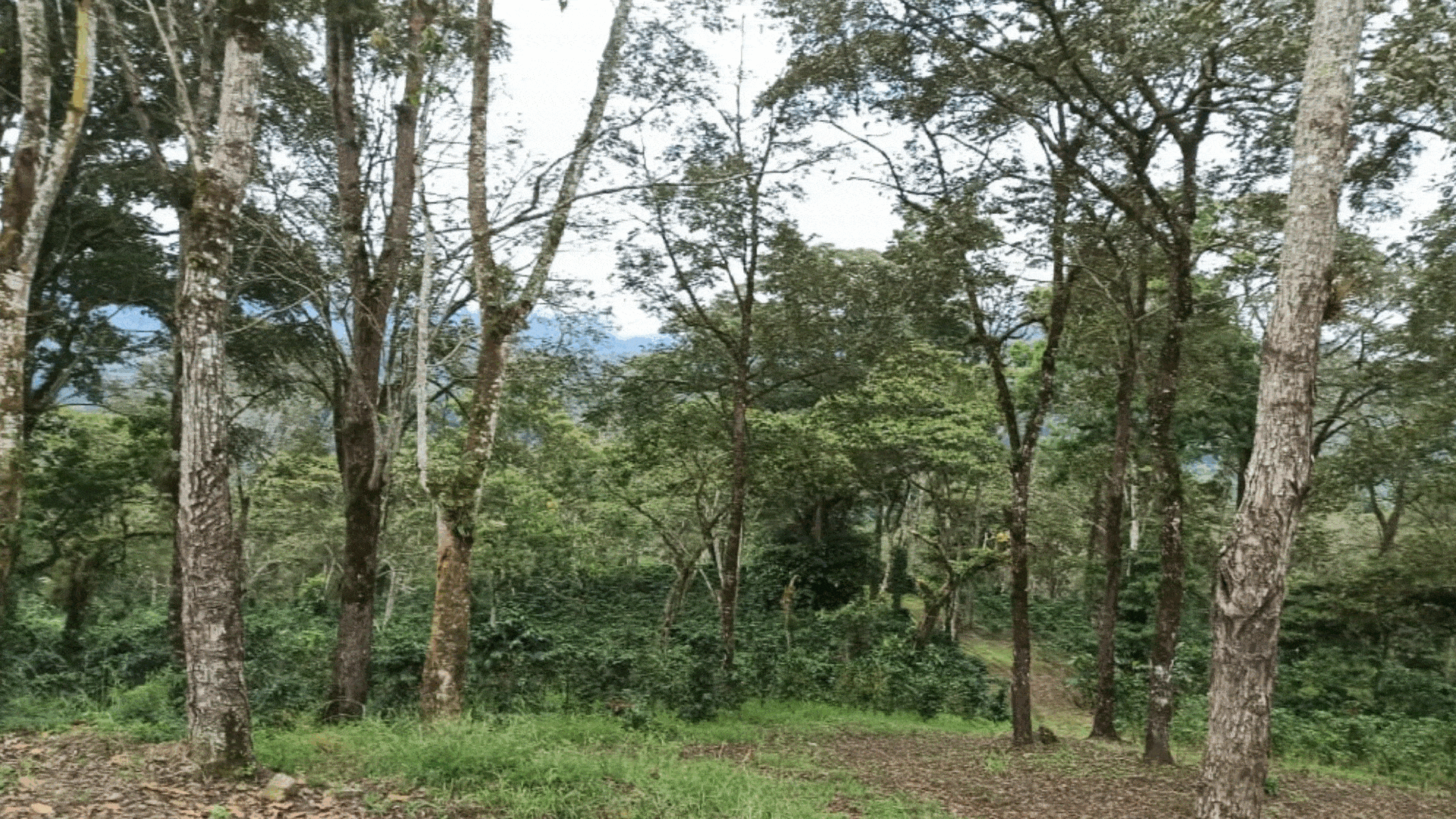
COFFEE – ‘NICARAGUA FOREST POSITIVE’
SOURCE
Location: Jinotega & Matagalpa
Altitude: 900 m.a.s.l.
Soil type: volcanic
System: agroforestry
Type of shade trees: mixed; ingas, native trees, banana trees
COFFEE SPECS
Species: Arabica
Varieties: Caturra, Catimor & Catuai
PROCESS
Picking Method: handpicked, at least 2 to 3 picking rounds
Washing Method: traditional washing and fermentation
Drying method: 100% sun-dried
CUP PROFILE
Praised for its vibrant acidity, subtle flavours, and delightful sweetness, this well-balanced coffee stands out for its excellent quality.
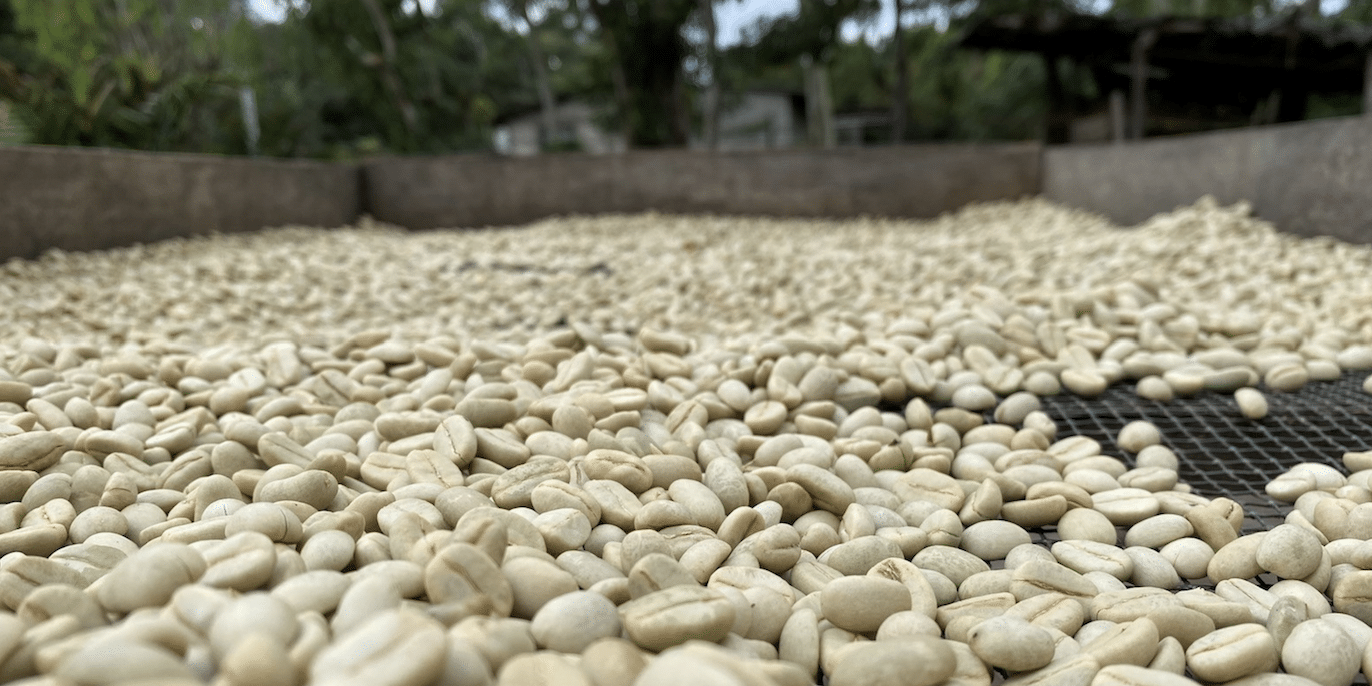
EFICO’s NEW YEAR RESOLUTION & GIFT
GOING BEYOND OFFSETTING
Our New Year’s Resolution is to go ‘beyond offsetting’.
A noble intention deserves meaningful action -and a thoughtful gift.
So, here’s what we propose:
➵ When you order 20 or more bags, EFICO will donate an equivalent number of carbon credits to you, allowing you to claim the CRUs in your own name.
➵ We also offer the opportunity to purchase additional CRU’s from this NICARAGUA FOREST POSITIVE project to cover your company’s Scope 1 & 2 emissions.
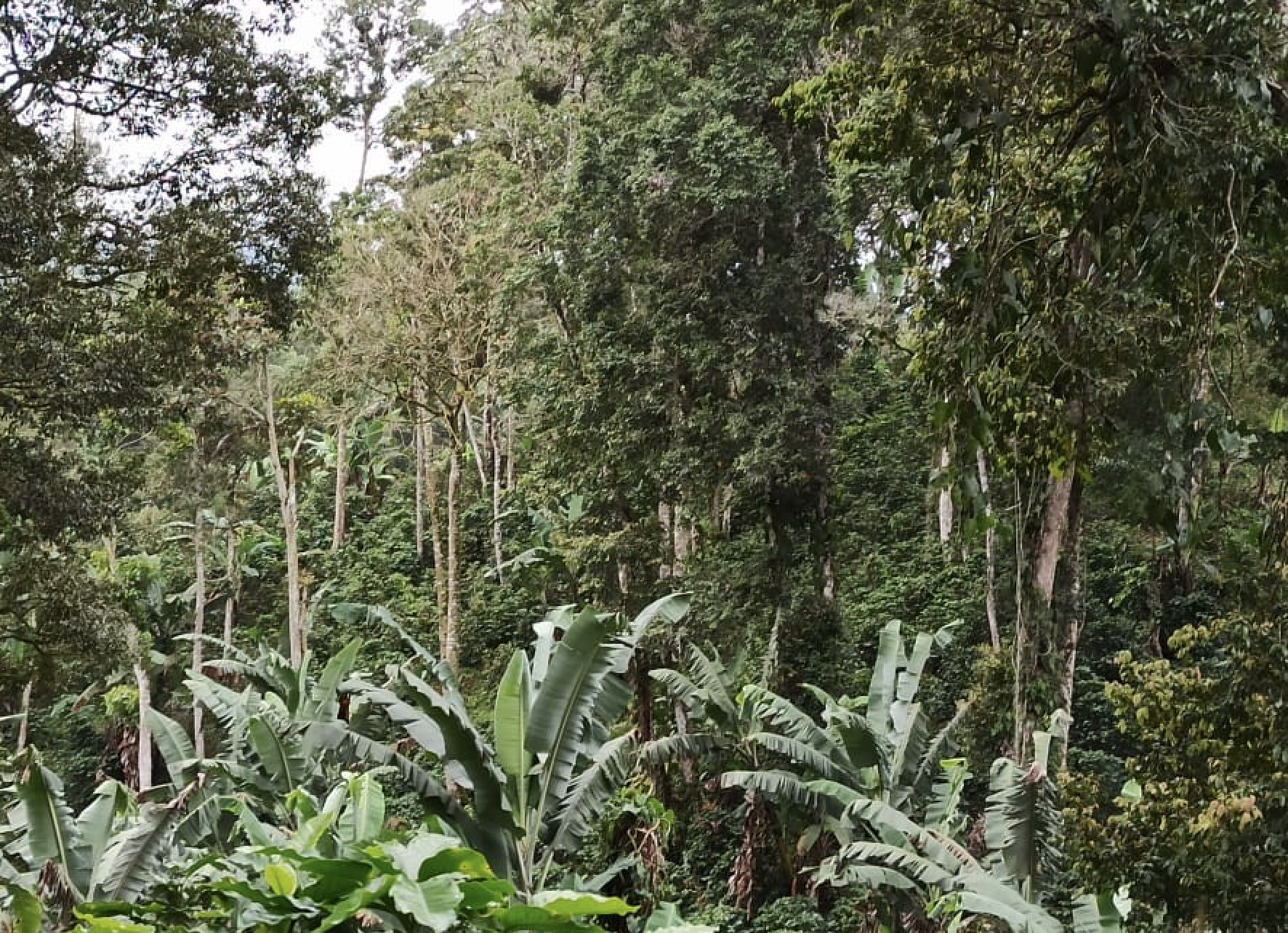
Ready to reduce emissions and invest in a sustainable future?
Let’s make it happen!
Together, we can:
- Help smallholder farmers thrive,
- Protect the environment,
- Achieve shared goals of carbon neutrality
Let’s grow coffee sustainably and work toward a carbon-neutral future -one cup at a time.
DEFINITIONS & REFERENCES
*Agroforestry: Ecological and Economic Benefits for Coffee
Agroforestry enhances coffee production by improving soil health, boosting biodiversity, and offering natural pest control while acting as a carbon sink to mitigate climate change and shield plants from extreme weather. It also supports cultural heritage, promotes sustainable resource use, and improves coffee quality and flavour diversity by slowing cherry maturation under shade. Farmers benefit from diversified incomes and access to premium markets, creating a more sustainable and resilient coffee value chain.
Carbon-neutral: A term used to describe a state where an entity’s CO₂ emissions are entirely balanced by efforts to reduce emissions and remove CO₂ from the atmosphere. Many companies rely on offsets to make carbon neutrality claims. Often used interchangeably with net-zero.
A carbon credit represents one tonne of CO₂ equivalent that has been removed or avoided through projects like tree planting, forest conservation, or renewable energy. These credits are often called ‘carbon offsets’, as they enable entities to balance out their own emissions by funding climate initiatives elsewhere. However, credits can also be purchased to support climate action without making specific offsetting claims. The concept of ‘additionality’ ensures that credits exist only because of these projects, which adhere to strict international standards and undergo rigorous certification by independent auditors. Once issued, carbon credits are registered in public databases, traded, and ultimately retired. Retirement occurs when a credit is used to offset emissions, rendering it invalid for further use. This allows entities to make claims like achieving ‘net-zero’ emissions.
Understanding Carbon Insetting vs. Offsetting
Carbon Insetting: Insetting refers to investing in emission reductions directly within a company’s own value chain. Originally coined by Plan Vivo, it refers to investments in emissions reductions within a company’s own value chain. It’s about improving processes, supply chains, and operations to primarily reduce emissions from operations -such as emissions from the production of goods and services bought by the company.
Carbon Offsetting: Offsetting, on the other hand, involves compensating for unavoidable emissions by funding projects that reduce carbon dioxide (CO₂) or other greenhouse gas (GHG) emissions outside the company’s value chain.
